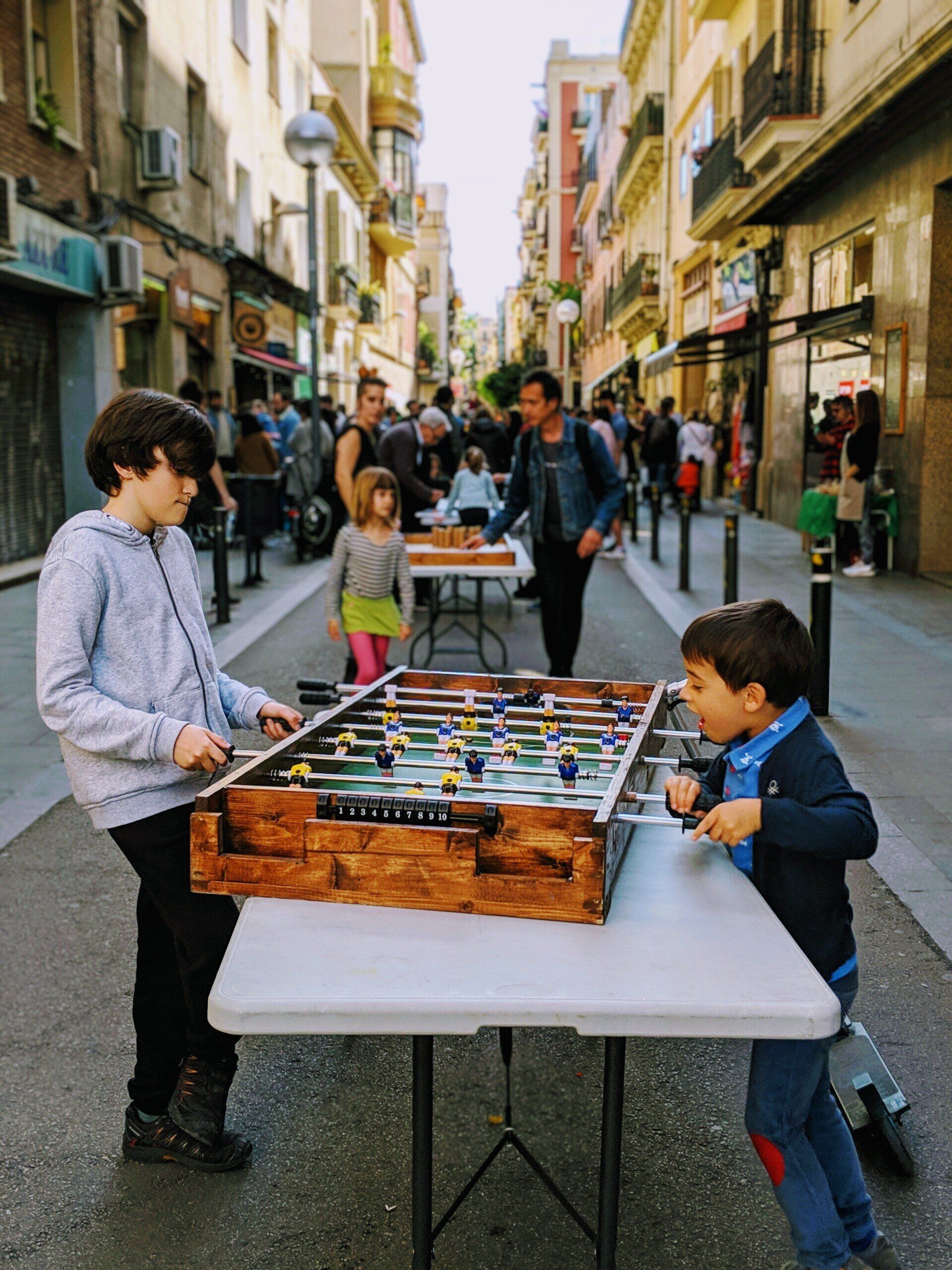Therapy Services
Play Therapy
Play therapy is a model of therapeutic intervention for children. It is different from regular play in that it includes a set of techniques conducted by a master's level counselor who has special training in play therapy.
Think of play therapy as talk therapy for adults. It works because cognitively children have a limited ability to use words to describe what they are experiencing. Play Therapy assists children to express their needs, wants, and wishes in a way that is developmentally appropriate for them.
Is your child struggling with poor social skills, sudden drop in academics, complaints of headaches or stomach aches with no illness, irritability, talking back, difficulty focusing, seems spaced out, sadness, or isolation?

Therapy Services
How Play Therapy Helps
Play is a child’s language. Children communicate through their behavior. Through the use of a variety of play therapy activities, we can help children process issues, address social and behavioral problems, and assist them in overcoming some of life’s toughest obstacles.
Suggested Read: "5 valuable Reasons Why Play Therapy Can Lead to Results"
Therapy Services
Who is Play Therapy For?
Children ages 3-13, and families with children of any age.
Children with the following life situations: Adoption, Divorce, Trauma (sexual, physical, and neglect), recent family move, death of a family member, recent hospitalization, natural disaster, stressful life experiences
Children with the following diagnosis: Autism, Aspergers ADHD, Depression, PTSD, Reactive Attachment Disorder, Learning Disorders, Encopresis, Enuresis
Children with the following behaviors: Anger / violence, non-compliance, poor social skills, regression of development, odd behavior, talking back, difficult to soothe, sadness, anxiety, high strung, poor appetite.
When children’s issues are detected early, treatment is often quicker, more effective, and preventive. Some of the issues we work with in children are:

Therapy Services
Counseling for Teenagers
Parenting throughout the lifespan is challenging. There are no step-by-step manuals on raising children.
At times it can be so overwhelming that parents feel out of options. Out of the love and care that parents have for their children, they choose to contact outside help for their child to cope with some of life’s tough problems. Capstone's trained adolescent specialists can provide other options and avenues of hope. Parents know the challenges of raising kids in our culture today. Parents know the feelings of desperation as children grow up and face challenges and transitions.
Play therapy and working with teens is a way to help navigate the often difficult transitions from childhood into adulthood.

Therapy Services
Play Therapy Assessment
There will be two interview appointments, one in which the therapist will meet with the parents without the children present (and not in the lobby) to discuss concerns the parents have. The parent session will include background information, family functioning, and hopes/goals of treatment.
The second session the therapist meets with the child alone and the parents wait in the lobby. This session assesses the child’s functioning and begins the relationship between child and therapist. Every play session we ask the parents to stay in the building if your child needs you.

Therapy Services
Does Play Therapy Have a Treatment Plan?
The parents and therapist will create the goal and plan of treatment together. Capstone Therapists do not come with a pre-planned agenda. We listen to your needs and assess the needs of the child. Goal of treatment is collaborative and can be adjusted through the course of treatment as your needs change.
When you bring your child to session, they will go back to the play room alone allowing them to feel comfortable to express whatever they need to. This can cause some anxiety for parents, and during the intake session the therapist will show you the play room and give examples of how children work through their problems.
Treatment can include Family sessions in addition to Play Therapy. Family sessions work best if all of the family participates. This means everyone the child lives with at home (Father, Mother, siblings, live in Grandparents, etc). During Individual Play therapy education materials can be reviewed by parents
How often, how long, and how many sessions are needed depends on what the concerns are and the needs of the child. The amount of sessions needing to resolve concerns depends on many factors. An ongoing discussion between therapist and parents will help decide the amount of sessions that will be appropriate for the needs of the child. Play therapy typically occurs one time a week. The more consistent one is with appointments the more benefits that are gained and faster the problem is resolved.

Therapy Services
What happens After Play Therapy?
Therapy is designed to end. It is the goal to assist the client in managing problems on their own. How fast/slow counseling progresses is determined by the work put in by the child and their family and the magnitude of the concern brought to counseling. It is important to have a last session to process closure and make relapse prevention plans with parents/family.


